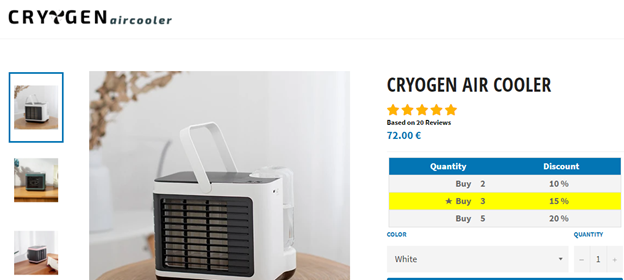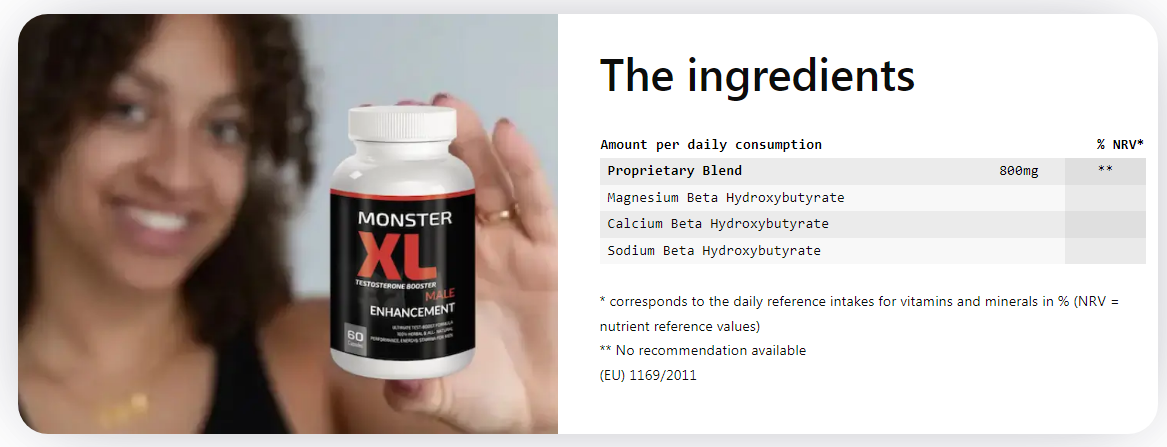Imagine a scenario where I say, that this midyear there is compelling reason need to purchase a New enormous A.C which will take a too lengthy interaction as it incorporates the buying, conveying, establishment, and so on you simply need to go through certain bucks to get a Cryogen Air Cooler. With an air purifier. Furthermore, what improves this than purchasing a standard A.C. is that you’ll get these the two of every one stuffed little box that can be conveyed with you anyplace.
Indeed, you read it right. Cryogen Cooler really makes this conceivable with an extremely basic procedure that includes no hurtful synthetic substances not so much for you or for the climate. You simply need water and a power association.
This implies that this late spring there is a compelling reason to need to spend on a costly A.C that will simply adhere to a side of the divider and sucks a ton of power. You simply need this little cooling monster to fulfill every one of your requirements and needs.
=>Get a Special half Introductory Discount on Any Order Made Now<=
What Is Cryogen Air Cooler?
Cryogen Air Cooler is a little, scaled-down, and compact but exceptionally solid, viable, and less power-consuming A.C and air purifier when contrasted with that of the market ones. The A.C has an extremely straightforward yet fasting cooling instrument that utilizations water and power. To that end, this is really helpful as well as movable.
The item is little sufficient that it can fit in your pack, gear, or in any little region. In any case, you shouldn’t misjudge the form quality with this reality. This piece has the most solidified and solid plastic that truly gives it a top-notch look and feel. The water tank, external body, air channels, and each and every other thing are simply magnificent and truly merit being a piece of your day-to-day existence exercises.

Alongside the cool and invigorating air breeze, the A.C additionally assists with keeping up with the nature of air in the encompassing nature. The channel introduced in the item cleans the air to an exceptionally high expansion and ensures that the air you’re taking in is perfect and liberated from any toxins.
Thus, there were a few exceptionally fundamental and significant benefits or motivations to purchase this item and make your number one spot cool with some new, clean, and sound air.
What Is the Disadvantage of Cryogen Air Cooler?
I know, it’s a piece hard to state and process the way that, this item enjoys no such benefits, and won’t ever lament purchasing this. This is A.C accompanies a strong body, cool plan, and moderate shape.
These, but at the same time, you’re getting an Air conditioner, air purifier, and humidifier at the expense of one. This makes the arrangement more productive and helpful for the clients. Furthermore, then again, there is no utilization of any unsafe compound and other engineered item nor does it consume power at an unwanted rate. Along these lines, all in all, nothing remains to be stressed over the cash that you are spending on it.
Who Is Buzzing About the Product?
“This little air cooler is actually the thing I’ve been searching for in my work area. My place of business is OLD and effectively the sunbeams make the room heat despite utilizing a focal AC. I can now cool my region utilizing outright water or unloading a couple of ice shapes in assuming I need it especially cold. It has three methods of speed, so I can remain agreeable, snaps set up without making a wreck, and endures the entire day positioning the vents up. It likewise has such a little impression so it tucks completely toward the side of my work area. I am so blissful I found this, it’s great to have cold air rather than a standard fan pushing around warm air.” A famous cardiologist says.
=>Click Here to View Pricing and Availability<=
Client’s Say about the Cryogen Air Cooler?
It’s the main springtime and I won’t utilize this thing yet it gets warm in the early evening where I reside. It’s passable yet I lean toward the chilly climate so I chose to turn this on and amazing, appears as though I will not need to stress over summer evenings. This thing kept me cool and loose. I like its little size as well and its convey ability. Believe it should be cooler? Simply add ice!!!
How Does Cryogen Air Cooler Work?
The functioning standard is very straightforward and there isn’t anything muddled in it,
It goes like this when you fill the water tank appended to the Portable Air Cooler and again fit its situation; the water gets utilized all the while. Allow me to let you know how?
At the absolute initial step, the air vents present in the body of the forced air system suck in the warm and contaminated air. Then, at that point, the multi-facet innovation of the Portable Air Cooler becomes possibly the most important factor. The air gets totally perfect and every one of the toxins, dust and other diffused particles are taken out from the air.
Presently, the water that you have filled in the capacity tank of the item gets utilized in the process to make the active air cool and clammy.
Along these lines, the warm and undesirable air gets cold and new which is great for your body and lungs without utilizing any synthetic or chlorofluorocarbons.
How Is the Cryogen Air Cooler Safe and Effective?
As referenced over the Cryogen Portable Air Cooler is totally protected and viable to make your room, work area, carport, or some other spot cool and help in diminishing the temperature.
=>Where Can We Send Your Air Cooler? Request Today<=
With regards to somewhere safe, there is no utilization of any unsafe or manufactured substance or component that harms the climate or is unfortunate for the body. Furthermore, adequacy is amazing in each viewpoint, whether it’s cooling, humidifying, or cleaning the air. The item can be utilized for anything from a higher place and the outcomes are extraordinary.
How to Use Cryogen Air Cooler?
The means to utilize the item were however basic as the instrument might have been. You should simply fill the water tank, and place the tank right back to the position where it was.
Presently, plug in the item and interface with give the power and you’re finished.
Presently, simply sit and partake in the sound, soggy, and cool air and that diminished temperature of your room that you generally longed for.
Does the Cryogen Air Cooler Have Any Special Discount?
Indeed, you would be ready to see any limits on the item yet provided that you get it now from the authority site of Cryogen Portable Air Cooler and get that weighty markdown of the half on it.
Not just this, there are different combo sets that offer you to save a great deal and particularly assuming you want multiple or for your office or some other authoritative use. Aside from this, you can likewise benefit yourself from its 30 days refundable arrangement.
There are no secret expenses or any such thing additionally the conveyance is super-quick and helpful for the client. Furthermore, in the event that you purchase different Cryogen Portable Air Cooler, you can likewise get free conveyance on them. However, these all offers are temporary.
Google Search Related :
Cryogen Air Cooler
Cryogen Cooler
Cryogen Air Cooler Reviews
How Does Cryogen Cooler Work
Cryogen Air Cooler Side Effects
Cryogen Air Cooler Benefits
Cryogen Air Cooler Customer Care No.
How Cryogen Air Cooler Service
Cryogen Air Cooler Result
Where To Cryogen Air Cooler Buy
Cryogen Air Cooler
What is Cryogen Air Cooler
Cryogen Air Cooler Cooling Methods
Cryogen Air Cooler Price
Cryogen Air Cooler in Machining Processes
Like and Follow Official Facebook Page – https://www.facebook.com/CryogenAirCooler


